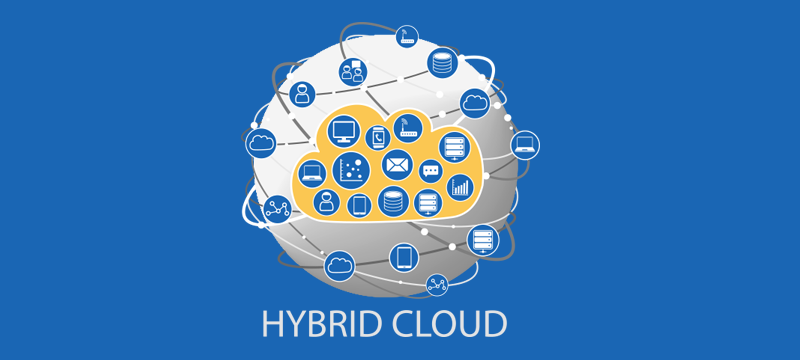To do things effectively, you have to choose the best tools for the job, which is why tradespeople carry an assortment of tools. That same maxim also applies to IT infrastructure; you don’t need to be tied to public cloud, private cloud or a dedicated server, instead, you can create a hybrid cloud environment that uses each of these for the tasks they are best suited. Unifying these infrastructures into a single system gives enterprises the ability to create a high-performance architecture which is more reliable, secure and cost-effective. Here, we’ll look at why you should consider a hybrid cloud solution.
- Flexibility
The different components of a hybrid cloud infrastructure give enterprises the ability to place workloads where they are most effective. For example, you can use the dedicated server element to undertake high-performance tasks, use the private cloud element for the storage and processing of sensitive data and use public cloud to achieve rapid deployment and scaling, while benefitting from its pay per use billing.
In this way, hybrid cloud setups enable enterprises to segment their architecture, logically and physically, to meet their exact needs. - Improved security
For enterprises within the UK and EU, regulations such as MiFID II and GDPR mean there is an increased need for tighter security and stricter management of personal data. There are also much harsher penalties for companies which do not comply, with fines of up to 20 million euros or 4% of global turnover.
With this in mind, a major concern that has prevented companies from adopting cloud technology is the security surrounding multi-tenancy. This is where the user’s data is isolated from each other but they still share the same software application and database.
One of the benefits of hybrid cloud is that dedicated servers and network devices can be used to isolate applications or restrict access. In addition, hardware can be configured in a way that enables dedicated servers and cloud servers to communicate over a private network and thus creating a secure, integrated environment.
By enhancing security in this way, enterprises are more able to meet the stringent compliance requirements demanded by auditors. - Pay as You Go agility
While a hybrid setup may require dedicated server elements, the cloud elements provide the scalability and agility needed to handle peak periods, traffic surges and batch jobs, and improve speed to market. And, of course, these on-demand resources are all billed on a pay per use basis.
It is even possible to use hybrid systems so that mission-critical applications that demand high performance are run on dedicated servers but, in times of high demand, additional capacity is provided by cloud servers in order to handle traffic spikes. - Use the most appropriate OS
In order to cater for the differing needs of enterprises, the majority of public cloud providers offer customers a range of OS to choose from. This can be valuable for those with legacy applications and those wanting to trial new software. Indeed, the ability to deploy cloud servers at speed has been seized on by innovators for R&D and for getting finished projects launched quickly. - One stop shop
Using a single provider for your hybrid cloud can mitigate a number of problems. Firstly, by reducing the number of vendors you are working with, it makes it easier to manage relationships, especially as the single vendor will have a complete overview of your requirements and can understand how each part works in relation to the other. This is perhaps critical if there are issues that require urgent vendor technical support, as a single vendor has the authority to work across the entire environment. With multiple vendors, each responsible for a separate element, this can be a complex and perhaps lengthy process that requires different teams to work together.
Conclusion
As you can see from reading this article, hybrid cloud architectures provide enterprises with the ability to run their applications in the most appropriate environments. Applications which need flexible resources and quick deployment can use public cloud servers; those that demand high performance can be run on dedicated servers; and sensitive data can be securely stored on a private cloud or isolated server. By unifying these separate entities into a single hybrid cloud solution, you can balance workloads effectively, increase efficiency, security and innovation, and operate cost-effectively. If you are considering hybrid cloud or cloud hosting check out our cloud hosting packages or call us on 0800 8620380.


